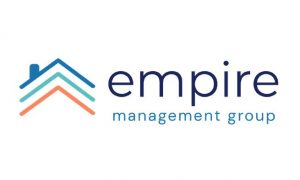What do my HOA dues pay for?
Your Dues Pay For All This!
Regular maintenance and repairs to common areas and equipment, as well as systems and amenities. Depending on the needs of your community, it may include:
- Lawn care, landscaping
- Water, plumbing and sewage systems
- Heating and air conditioning systems in a clubhouse/pavillion
- Lighting replacements throughout the community
- Removal of waste receptacles
- Gates and security system
- Elevator system(s)
- Exterior and common area cleaning, painting and maintenance
- Pest control
- Maintenance of common amenities like a pool, exercise equipment, clubhouse or walking trail, a tennis court, and a basketball court.
To protect your community’s buildings, exteriors, and property, your association will need to purchase a master policy. This policy will include any riders or add-ons that may be required by your community, its location, property type, and other requirements. This insurance is not meant to replace your homeowner’s insurance.
Homeowners’ associations pay for electricity, lighting, water, heating, cooling, and other costs. For all common areas in the community.
Communities that are financially sound allocate a portion from their assessments to a long-term reserve account. This account is used to pay for planned and budgeted repairs or renovations to your community’s amenities. Your community may assess an additional fee if the reserve fund does not cover these expenses.
A portion of HOA fees can be used to pay the salaries and benefits of community employees such as maintenance staff, janitorial staff, or coordinators for social events.
Many HOAs hire professional community management companies to ensure the community’s financial stability and operations. Their fees are paid by HOA dues. Professional community management companies will implement the Board’s policies and provide full-service management services that enhance the lives of residents.
Living in a community of common interest and paying HOA fees has another benefit: the ability to access community amenities that you may not be able buy or maintain yourself, such as a swimming pool, tennis courts, gym, and walking trails.
HOA fees may seem like an unnecessary expense to some, but they are essential for your life and your community’s financial stability. This helps you protect your property value.
Your HOA Dues
Once you become part of a common interest development or an HOA, you are required to share the costs of maintaining and operating your community’s common areas, equipment, and shared amenities. By doing this you are working to maintain the appearance of your community which means that property values can not only maintain but can even increase over time. The services required to keep the common areas and shared amenities maintained are covered by your homeowners’ association fees, which each owner must pay. Payments are due either monthly, annually, semi-annually, or quarterly, depending on your community and their payment schedule.
HOA assessments (also known as “dues”) are set by the Board of Directors, who determine each owner’s share based on projected annual expenses. Each year, the Board of Directors discusses the budget of the association based on the last few years’ spending trends, funding of the reserve or savings account, and planned projects for the upcoming year. Board members do not profit from HOA fees; they are homeowners just like you and are obligated to pay assessments the same as all owners.
You know you must pay an assessment, but do you know what this money is used for? Each association has its own unique rules and policies, so it is important that you read your community’s Covenants, Conditions and Restrictions (CC&Rs) and Bylaws to find out the specifics.
You can locate the budget under the community info section of your online account located here.

